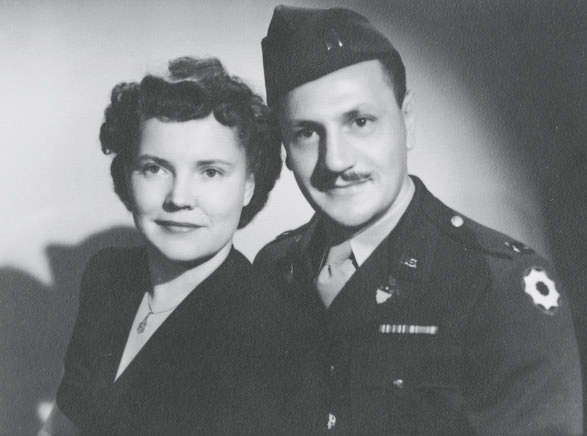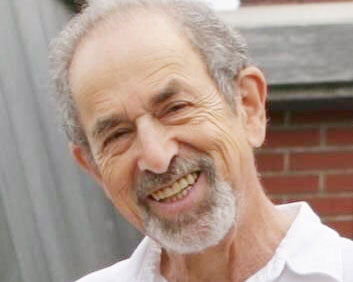First Native American student at Reed served as teacher and social worker
Oma Izetta Woodcock Singer ’38

Oma Izetta Woodcock Singer ’38, 2011, in Washington. Amy grew up in South Bend, Washington, immersed in the culture of her mother and her ancestors, the Chinook Indian tribe. Amy’s mother taught her the Chinook language and customs, shared her knowledge of medicinal plants, and insisted that Amy and her siblings live by the Chinook honor system and with absolute integrity. Amy attended South Bend High School, but transferred to the Chemawa Indian School in Salem, Oregon, after witnessing racial discrimination aimed at one of her sisters. At Chemawa, she met young people from Montana, Alaska, Arizona, Wyoming, and California; unfortunately, they were forbidden to use their native languages and there was no instruction in Indian culture.
The school’s “outing system,” designed to place young women in homes as maids and housekeepers, bored Amy, who aspired to be a teacher. “And one day the home economics teacher came to me and said, ‘I know of a placement in Portland where you could go. And, maybe if you went there and you learned about the college in the city, maybe you could go there.’” Amy was hired as a housekeeper by professor Larry Hartmus [classics 1930–39], who soon recognized her passion for knowledge (she read her way through the family’s library) and recommended she seek admission to Reed. She was accepted in 1934, becoming one of the college’s first Native American students, and later winning a scholarship from the Bureau of Indian Affairs. Psychology professor Monte Griffith [1926–54] advised Amy’s thesis, “The Nature and Source of Referrals to the Child-Guidance Clinic,” for which she earned a BA. Amy also babysat for professor Frank Munk [political science 1939–65]; one of her charges was the young Mike Munk ’56.
In the process of doing thesis research at the University of Oregon Medical School, she met William Singer ’32, MA ’34. They were married two days after Amy graduated from Reed. Intending a career in social work, she took classes at the University of Washington and held positions in public welfare in Multnomah County and Benton County. During World War II, she followed Bill on stateside military assignments and worked for a number of organizations related to the war effort, such as the War Price and Rationing Board, the American Red Cross, and the Travelers Aid Society. They welcomed a daughter, Jane, and Amy returned to the workforce as a substitute teacher when Jane was seven. Amy later earned a master’s degree in social work at Portland State University and did social work in Portland public schools and with Head Start in Vancouver, Washington, retiring as program director. In retirement, she was a community volunteer, including with Friends of Hospice, and was an elder of the Chinook tribe. She and Bill traveled to Europe and collected Indian baskets. Her closest Reed friends were Helen Wheeler Hastay ’39 and Millard Hastay ’41. “I’m sure if I had gone to some school like what they called then normal school, I probably would have just been a teacher and stuck to whatever academic things I had, and not really branched out as much. I think that Reed inspires you to get out and do other things.” Amy said that Reed also encouraged her lifelong interest in politics, but that she and Bill never caught on to the politics of the workplace. “The advancement in our careers was based on conscientious performance and perseverance.” Amy and Bill made a generous gift to the William and Ruth Griffith Memorial Scholarship Fund at Reed in memory of their beloved professor, Monte Griffith. Survivors include her daughter, Jane; granddaughters Elizabeth Belt and Wendy Belt Wallace ’97; three great-grandchildren; and her sister, Myrtle. Bill died in 1992. Donations may be made in her memory to the Chinook Tribe Recognition Fund, PO Box 368, Bay Center, Washington 98527.
Appeared in Reed magazine: March 2012





![Photo of Prof. Marvin Levich [philosophy 1953–94]](https://www.reed.edu/reed-magazine/in-memoriam/assets/images/2022/LTL-levich1.jpg)
![Photo of President Paul E. Bragdon [1971–88]](https://www.reed.edu/reed-magazine/in-memoriam/assets/images/2020/Bragdon.jpg)
![Photo of Prof. Edward Barton Segel [history 1973–2011]](https://www.reed.edu/reed-magazine/in-memoriam/assets/images/2020/Segel.jpg)








































































